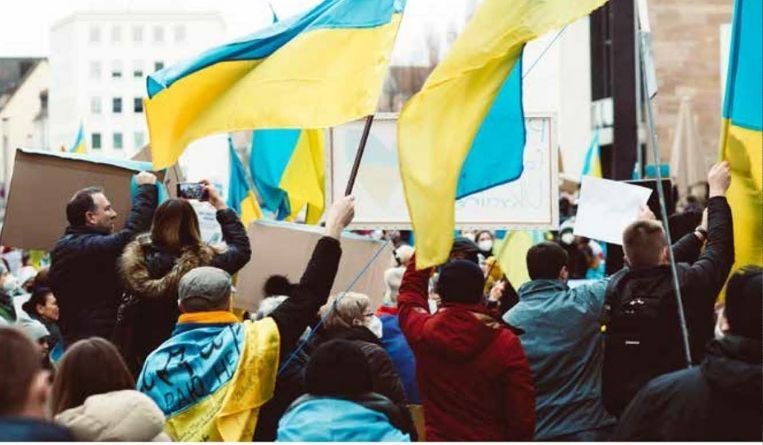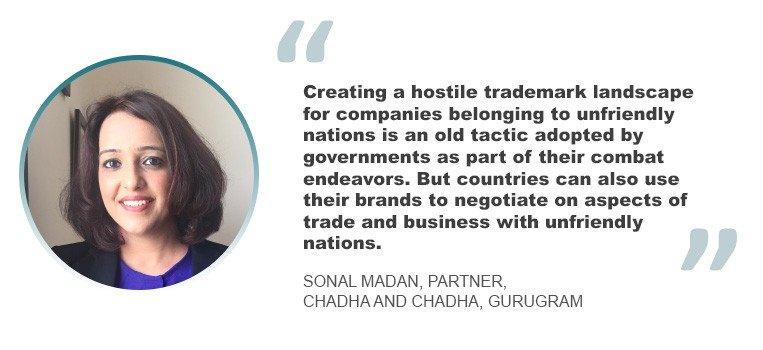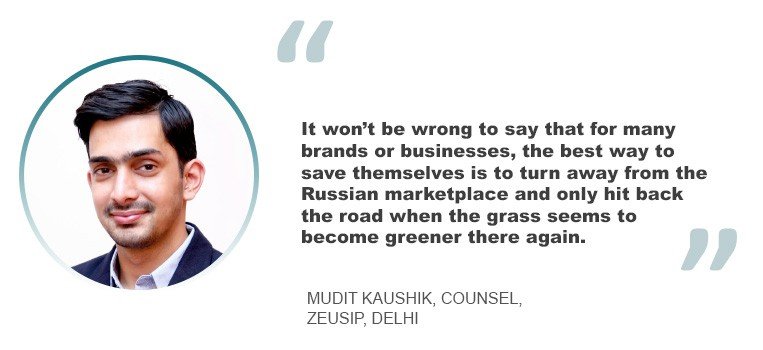When trademarks are used as a war strategy
06 July 2022

Modern-age warfare is not limited to conventional forms of attack. Nations have recognized that traditional weaponry cannot be enough in weakening enemy nations. Thus, governments are developing strategies to create economic blockades against belligerent states across the globe. This sometimes comes in the form of intellectual property, which has played a key role in economic warfare.
According to Sonal Madan, a partner at Chadha and Chadha in Gurugram, during World Wars I and II, the U.S. government and its allies seized intellectual property from companies associated with enemy countries, such as Germany. She gives an example where Bayer, the German Pharmaceutical company, lost its rights to aspirin due to the Treaty of Versailles in 1919.
“Typically, trademarks play a significant role in determining brand value,” she says. “Therefore, creating a hostile trademark landscape for companies belonging to unfriendly nations is an old tactic adopted by governments as part of their combat endeavours.”
She adds that disarming belligerent countries of their intellectual property investments is an economic weapon to weaken them.

“Facilitating bad faith trademark filings, allowing counterfeit products to proliferate the market, and enabling local businesses to exploit foreign companies’ intellectual property are examples of how trademarks may be used to combat,” she says. “A recent example of the same is the Russia-Ukraine war. In early March of this year, the Russian government stated that Russian companies are no longer obliged to compensate owners of patents, utility models, and industrial designs from ‘unfriendly’ countries. This decision of the Russian government effectively legalizes the piracy of intellectual property of western companies.”
The list of unfriendly countries includes Australia, Japan, South Korea, New Zealand, Singapore, Taiwan, the United States, the United Kingdom and all European Union member countries. The Federated States of Micronesia, an island nation spread across 2.6 million square kilometres in the western Pacific – the 14th-largest exclusive economic zone in the world – was also named to the list.
However, while the effective legalization of trademarks is a problem, on a positive note, trademarks can also play an essential role in economic diplomacy between nations. “Thus, countries can also use their brands to negotiate on aspects of trade and business with unfriendly nations,” she says. “A recent example of using IP in bringing nations to the negotiation table has been primarily exemplified in the U.S.-China trade war.”
But if trademarks are used as an attack, how does this impact brand, businesses, and even individuals?

The impact on businesses and brands and what they can do to bounce back
The use of trademarks in warfare affects brands and businesses in the most profound ways. Not only does it take away a huge portion of the business of the IP owner from that particular country, but it also leaves them vulnerable to IP infringement. This can be highly demotivating for inventors and innovators as they witness their IP being monetized without their consent, with effects that last through generations.
For Mudit Kaushik, counsel at ZeusIP in Delhi, if push comes to shove, brand owners may be forced to face their IP thieves as their competitors in the future or even go bankrupt, affecting jobs and creating havoc.
“After being treated unfairly, these businesses will eventually reach out to the government to support them and demand justice, giving birth to even more conflict down the road,” he says. “Even if they decide to end their exchange in a certain country, it does not guarantee that the infringement won’t follow them in any other foreign country as well and therefore, they may come under the risk of a lawsuit and lose their identities.”
So, what to do when this happens? Considering the major trademark infringements happening in reference to the Russia-Ukrainian war, there would be massive turmoil among the brands if they should file application(s) to safeguard their IP. Kaushik says that considering how Russian entities could very easily get trademark registrations of other companies’ logos or names so as to demand a lump sum in exchange shows a clear pathway that brands need to be very particular while dealing with such strategies.
“To begin with, professional advice can go a long way. Being aided by IP experts gives an insight into how to work around their trademark portfolio. Keeping hopes high for normal trading methods to resume in Russia, western brand owners should weigh all the possible implications in regard to existing or new trademark rights. It is also important to keep note of any illegal or infringing activity that takes place across this sector as it may prove worthy of evidence against illegal offenses in the future when things might shift back to normal,” he said.
“It won’t be wrong to say that for many brands or businesses, the best way to save themselves is to turn away from the Russian marketplace and only hit back the road when the grass seems to become greener there again,” he says.
Excel Dyquiaingco






